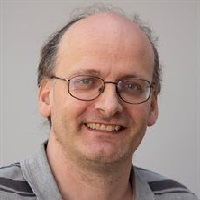
Prof Emma Kendrick
WP 3.0
Emma Kendrick is Professor of Energy Materials.
Professor Kendrick has worked in industry and academia extensively on energy materials and devices; batteries and fuel cells, and has 70 papers and 21 patent family applications in this field. Her recent book chapter on Advanced Battery manufacturing is being published by the RSC.
Her research over the last 20 years has focused on the translation of novel functional materials to industry-relevant device demonstrators, new battery materials and chemistries to cell demonstrators.
Her enthusiasm for new technology development, mainly batteries, extends to the industrial and academic fields. She has been on many EPSRC industry advisory boards and is currently a functional material specialist on the physical science SAT for EPSRC, a Committee member for the Energy Group at IoM3 and the Materials Division Council at the Royal Society of Chemistry.
Emma is also the group lead for the Energy Materials Group now at the University of Birmingham.
https://www.birmingham.ac.uk/staff/profiles/metallurgy/kendrick-emma.aspx
Prof David O. Scanlon
WP 1.3 Leader
I completed my undergraduate degree in Computational Chemistry at Trinity College Dublin (TCD) in 2006, and then joined the research group of Professor Graeme W. Watson in TCD. During my PhD, my research focused on investigating oxides with catalytic applications, as well as studying the fundamental properties of transparent conducting oxides (TCOs).
I successfully defended my thesis “Electronic structure studies of p-type semiconducting oxides” in my examination by Prof. C. Richard A. Catlow FRS, University College London (UCL) and Prof John C. Corish, TCD on 21st January 2011. I received a Thomas Young Centre Junior Research Fellowship to visit UCL for 3 weeks for collaboration with Prof. Catlow in spring 2011.
In October 2011 I moved to the Department of Chemistry in UCL to take up a Ramsay Fellowship, jointly funded by the Ramsay Memorial Fellowships Trust and the MAPS Faculty in UCL to carry out independent research into novel materials for renewable energy applications. In 2012, I was awarded the Royal Irish Academy Young Chemists prize for 2011, for “the most outstanding Irish PhD thesis of 2011 in the area of the chemical sciences”. I also received an honourable mention in the 2012 IUPAC World Prize for Young Chemists competition.
In September 2013 I was appointed as a Lecturer in Computational, Materials and Inorganic Chemistry in the Department of Chemistry in UCL. The position is a joint appointment with Diamond Light Source, and I spend approximately 50% of my week at Diamond.
In 2015 I was awarded the RSC Harrison-Meldola Memorial Prize for the “development and application of computational techniques to understanding and predicting the properties of functional semiconductors for energy applications”. In June 2015, I was made a Fellow of the Royal Society of Chemistry.
In October 2016 I was appointed as a Reader (Associate Professor) in Computational, Materials and Inorganic Chemistry in the Department of Chemistry in UCL. In December 2016 I was made a Fellow of the Higher Education Academy (FHEA), which means that I have met the appropriate standards in teaching and supporting learning in higher education, under the UK Professional Standards Framework (UKPSF).
In July 2017 I was awarded a prestigious ERC Starting Grant, to examine mixed anion semiconductors for energy applications.
In June 2018, I was awarded the UCL Student Union Student Choice Award for “Outstanding Research Supervision”, with the award highlighted in the UCL MAPS Faculty news. Following this, I was shortlisted for the Times Higher Education Awards 2018 for “Outstanding Research Supervisor of the Year”. In October 2018, I was promoted to Professor in the Department of Chemistry in UCL, with the title Chair of Computational Materials Design.
https://www.ucl.ac.uk/chemistry/people/david-scanlon

Prof Peter Slater
WP 3.0
Professor Peter R. Slater is a Professor of Materials Chemistry at the University of Birmingham and Co-Director of the Birmingham Centre for Energy Storage. He has more than 30 years of research experience in the area of solid-state/materials chemistry, ranging from battery materials to solid oxide fuel cells. In these areas, he has published more than 250 papers in scientific journals and has written more than 20 review articles. His present research focuses mainly on the development of ionic and mixed conductors for energy storage and conversion applications (e.g. Li/Na ion batteries and solid oxide fuel cells), as well as strategies for recycling such materials.
He is also active in promoting research into new energy technologies in schools and to general non-scientific audiences
https://www.birmingham.ac.uk/staff/profiles/chemistry/slater-peter.aspx


